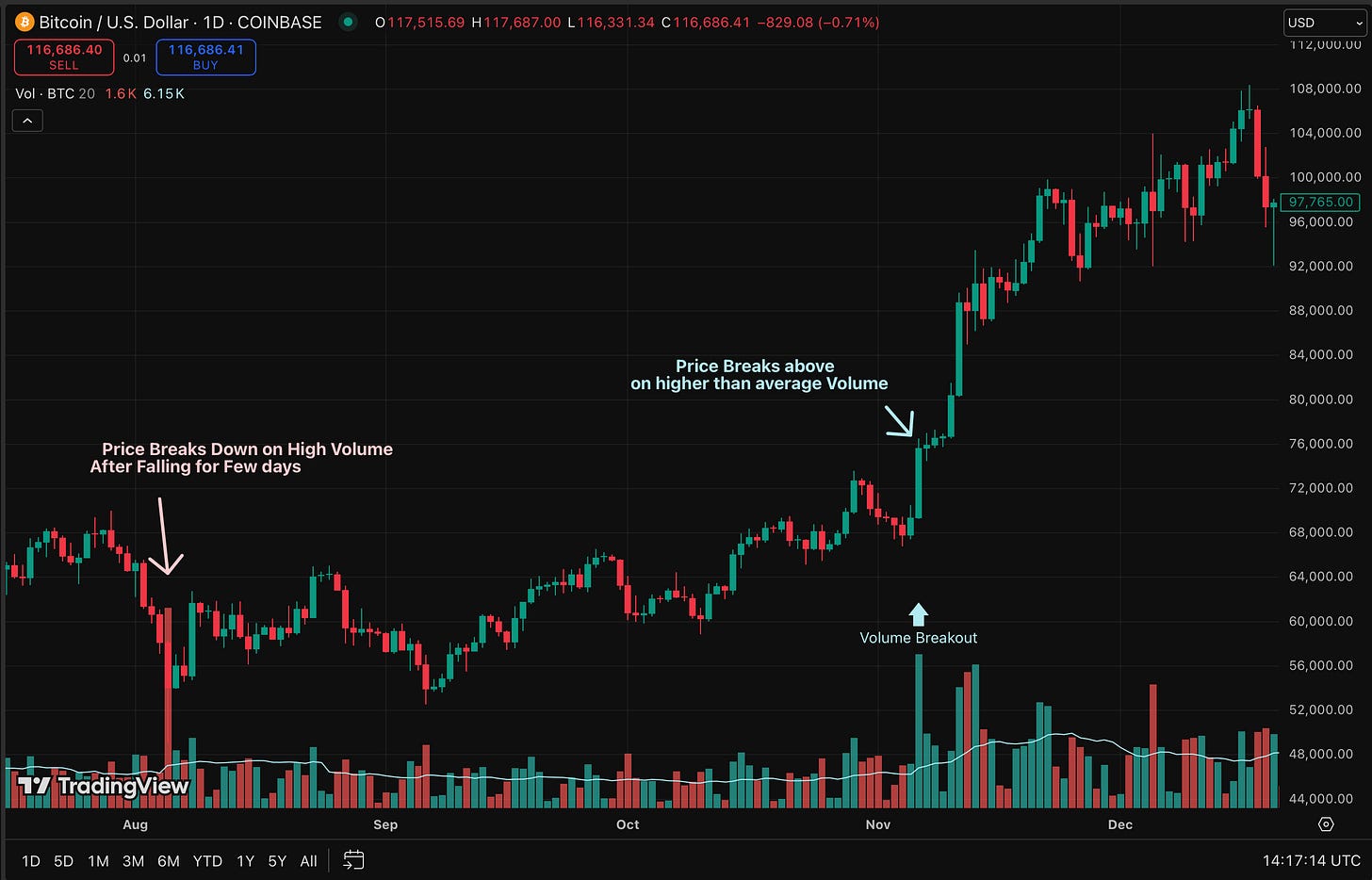A Systematic Volume Edge for Spotting Conviction in Bitcoin Trades
Price Shows the Move. Volume Reveals the Intent.
The Volume Most Traders Ignore
Most traders fixate on price charts. They draw lines, spot patterns, and chase candles. Fewer look at volume. And almost no one asks the deeper question: Is the volume actually driving the move—or just riding along?
This matters—especially in crypto. Markets here don’t sleep. Whipsaws are common. Sentiment flips fast. And what looks like a clean breakout often collapses before your coffee cools. You’ve probably seen it: Bitcoin jumps 3%, social feeds explode, then the whole thing reverses by lunchtime. Why? Weak conviction. No real volume behind the move.
In this article, I’ll show you a better way to measure conviction—the Volume Positive Negative (VPN) indicator. It quantifies when volume truly supports price action, helping you filter out fakeouts and spot high-probability setups. VPN works surprisingly well on Bitcoin’s chaotic, momentum-driven structure.
I will explain the logic and math behind it, detail entry and exit rules, show real trade examples, present backtest results, and visualize performance with clear charts.The goal: a simple, rules-based edge powered by volume—not vibes.
Why Volume?
Volume tells you what price can’t: who cares. Price shows you what happened. Volume shows you how many people actually showed up. Without volume, a breakout is just a headline. With volume, it’s a move backed by real capital—and real conviction.
In crypto, this matters even more. Volume reflects attention, risk appetite, and urgency—three things that define short-term market direction. When price rises on rising volume, it usually means buyers are stepping in with size. But if volume stays flat—or worse, drops—then even strong-looking candles may be nothing more than wishful thinking or engineered pumps.
Think of volume like the crowd in a stadium. Price is the scoreboard, but volume is the noise level. If it’s quiet, the game probably doesn’t matter.
VPN builds on this by showing you when the crowd is actually getting loud—and in which direction.
How the VPN Indicator Actually Works
Not all volume counts. VPN filters the noise and focuses only on meaningful volume behind meaningful moves. It looks for days where price moved significantly, then checks whether volume confirmed the direction. No volume? No signal.
Here’s the logic in plain terms:
On an up day: Price must rise by more than 0.1 × ATR, relative to the previous day’s typical price (the average of the high, low, and close).
On a down day: Same logic—price must fall by more than 0.1 × ATR.
Flat or “choppy” days get ignored. If price doesn't move enough, volume doesn’t matter.
Once we’ve defined significant up or down days, VPN adds up the volume behind them—up volume on breakout days, down volume on breakdowns—and calculates the net strength.
Formula
Where:
Typical Price:
\(\frac{H + L + C}{3}\)ATR: Average True Range over the lookback window (e.g., 14 bars)
Up/Down Volume: Only counted when the typical price change exceeds 0.1 × ATR
The output is a smoothed percentage, usually between -100 and +100:
Above +X% → Bullish breakout confirmed by volume
Below –X% → Bearish breakdown with strong selling
Near 0% → Indecision or low-conviction noise
On daily Bitcoin data from 2016 to start of 2025, our VPN-based strategy returned over 19,000%, with fewer than 100 trades. It beat Buy & Hold on drawdowns, on trade duration, and on risk-adjusted return. The average trade lasted just few weeks—but captured high-conviction breakouts while avoiding deep whipsaws.
Here’s the edge: by filtering for meaningful price action backed by real participation, VPN cuts through noise better than raw volume or price alone.
Now let’s get tactical. Next, I will reveal the exact entry/exit rules with clear diagrams, along with signal threshold (X%) and the optimal smoothing parameter. You’ll also see how to combine VPN with few other indicators in Python code to build a complete, backtested strategy that’s robust, selective, and surprisingly simple to execute.
Let’s dive into it!



